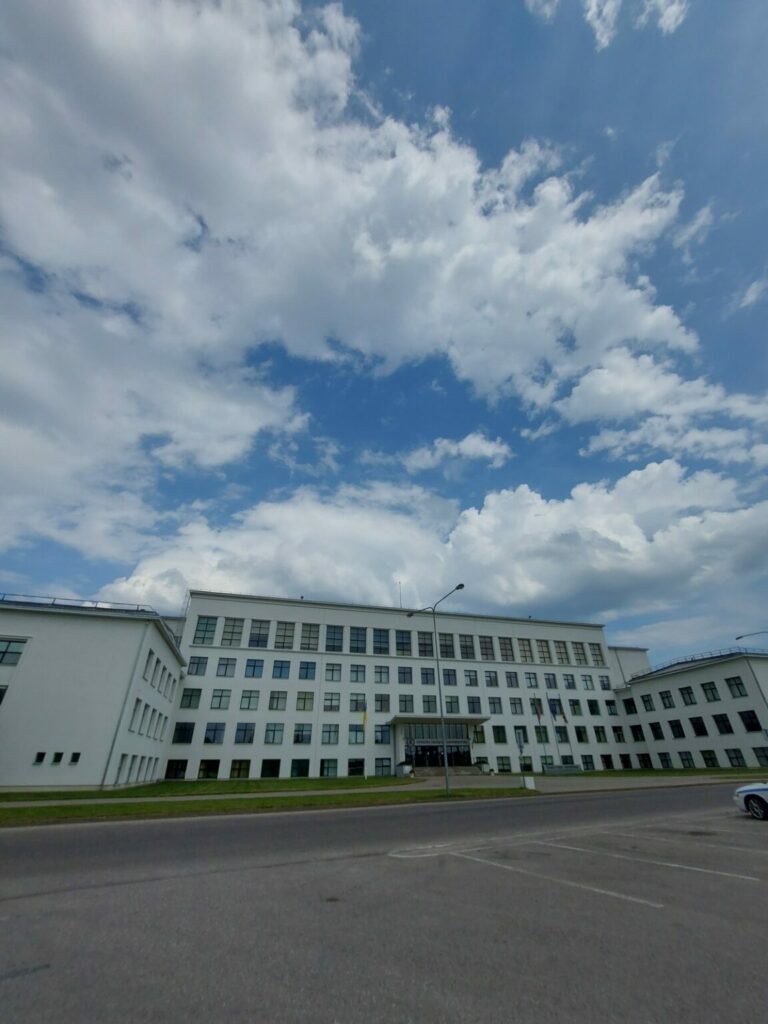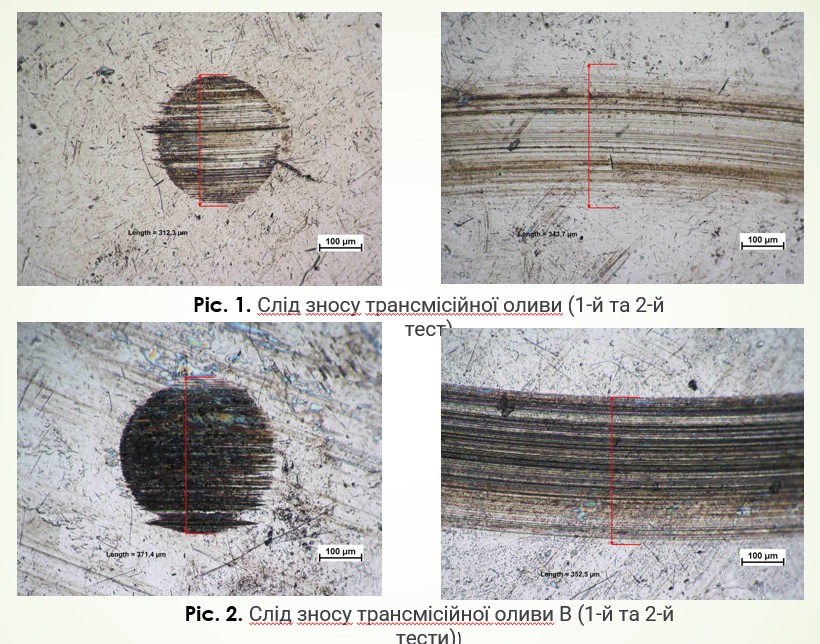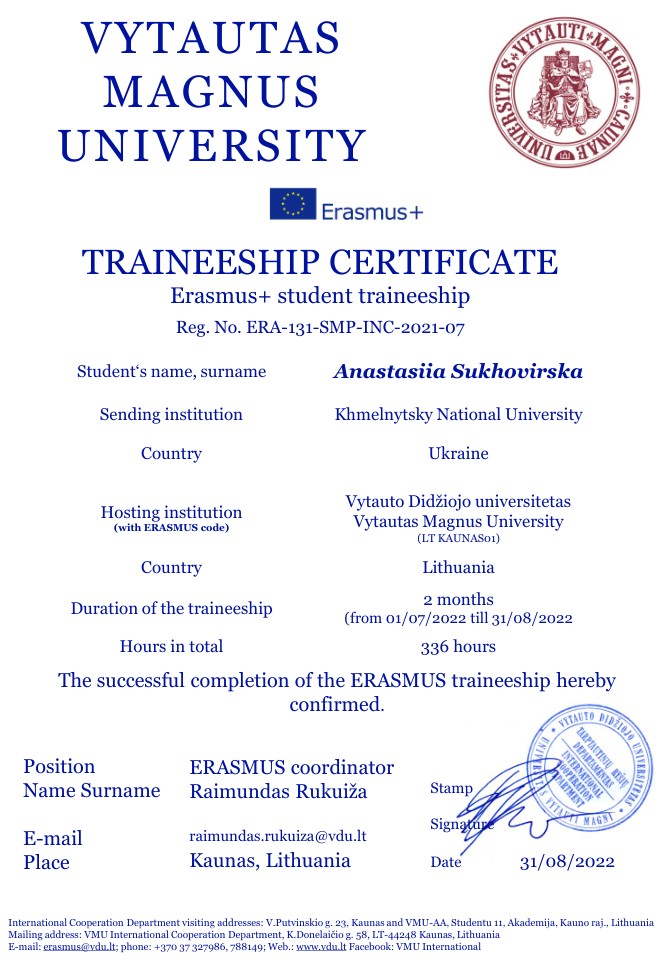Modern agricultural machinery is characterised by a high level of engineering complexity, requiring efficient lubrication systems and reliable lubricants. One of the key groups of such materials are transmission oils, which ensure the stable operation of gearboxes, transmissions, differentials, and other units of agricultural machines. Their quality directly affects energy efficiency, durability, and maintainability of the equipment. Within the framework of the Erasmus+ programme, from 01.07 to 31.08.2022, Anastasiia Sukhovirska, a student of speciality 208 “Agroengineering”, had the opportunity to undergo studies and research practice at Vytautas Magnus University (Kaunas, Lithuania), where work was carried out on studying the composition, properties, and tribological characteristics of modern transmission oils.


Aim and Objectives
The aim of the research was to conduct a tribological evaluation of various samples of transmission oils used in agricultural machinery, namely:
- study of physico-chemical properties of oils (viscosity, density, pour point, oxidative stability);
- investigation of anti-wear and anti-scuffing characteristics;
- analysis of the effect of additives on oil performance under high load conditions;
- comparison of laboratory test results with the requirements of international standards (API, SAE, ISO).
Research Methodology
In the laboratories of Vytautas Magnus University, modern methods of tribological evaluation were applied:
- four-ball wear and friction tester for determining critical load and wear scar diameter;
- viscometric methods for evaluating viscosity changes at different temperatures;
- інфрачервона спектроскопія (FTIR) для аналізу структури присадок та процесів старіння оливи;
- inductively coupled plasma optical emission spectrometry (ICP-OES) for determining metal content and wear products.
The conducted studies showed that synthetic transmission oils have higher oxidative stability and better maintain viscosity properties under temperature fluctuations compared to mineral analogues. The presence of anti-wear additives (zinc dialkyldithiophosphates – ZDDP) significantly reduces the wear contact area and increases the critical load. Bio-based oils from plant components demonstrated promising results in environmental safety, though they were inferior to synthetics in terms of thermal stability. Long-term tests confirmed the importance of regular oil condition monitoring to prevent premature transmission failure.

Participation of Anastasiia Sukhovirska in the Erasmus+ programme provided valuable practical experience in the field of tribology and familiarised her with advanced methodologies for lubricant analysis.
Thus, international cooperation within Erasmus+ contributes to the development of scientific competencies of agroengineering students and enhances their competitiveness in the professional field.

As a result of the internship, the student received a certificate.